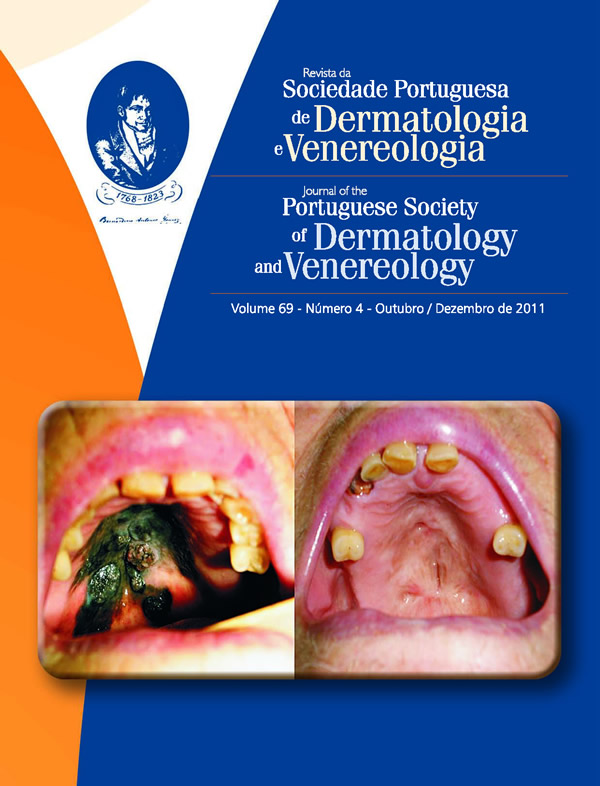RECOMMENDATIONS FOR HIGH-QUALITY USE OF BIOLOGIC THERAPIES IN ADULTS WITH PLAQUE PSORIASIS
Abstract
Psoriasis is an inflammatory dermatosis, affecting approximately 2% of the population, with predomi- nantly skin and joint involvement but also associated with considerable comorbidities. Approximately 20% to 30% of patients have moderate to severe disease uncontrollable with topical therapy. Traditional systemic therapy – oral PUVA, retinoids, cyclosporin and methotrexate – may induce organ specific toxicity and a significant number of patients are unresponsive, intolerant or have specific contraindications to its use. With the increased understanding of the pathoge- nesis of psoriasis, multiple biologic agents have been introduced. In the last years there has been an increased utiliza- tion of these agents and several studies were designed to evaluate their efficacy and safety. Currently, four biologics have been already approved by EMEA (European Medicines Agency) for the treatment of plaque psoriasis, 3 anti-TNFα (adalimumab, etanercept and infliximab) and one anti-IL12/23p40 (ustecinumab). In the present article we update the prior published guidelines (Trabalhos da SPDV 2010, 68(1): 47-68) due to the recent progress in the knowledge and therapeutic options in these area. These recommendations should be used with caution and treatment should be tailored to meet individual patient’s needs and each specific clinical situation.
KEYWORDS – Adalimumab; Etanercept; Guidelines; Infliximab; Psoriasis; Ustekinumab.
Downloads
All articles in this journal are Open Access under the Creative Commons Attribution-NonCommercial 4.0 International License (CC BY-NC 4.0).








